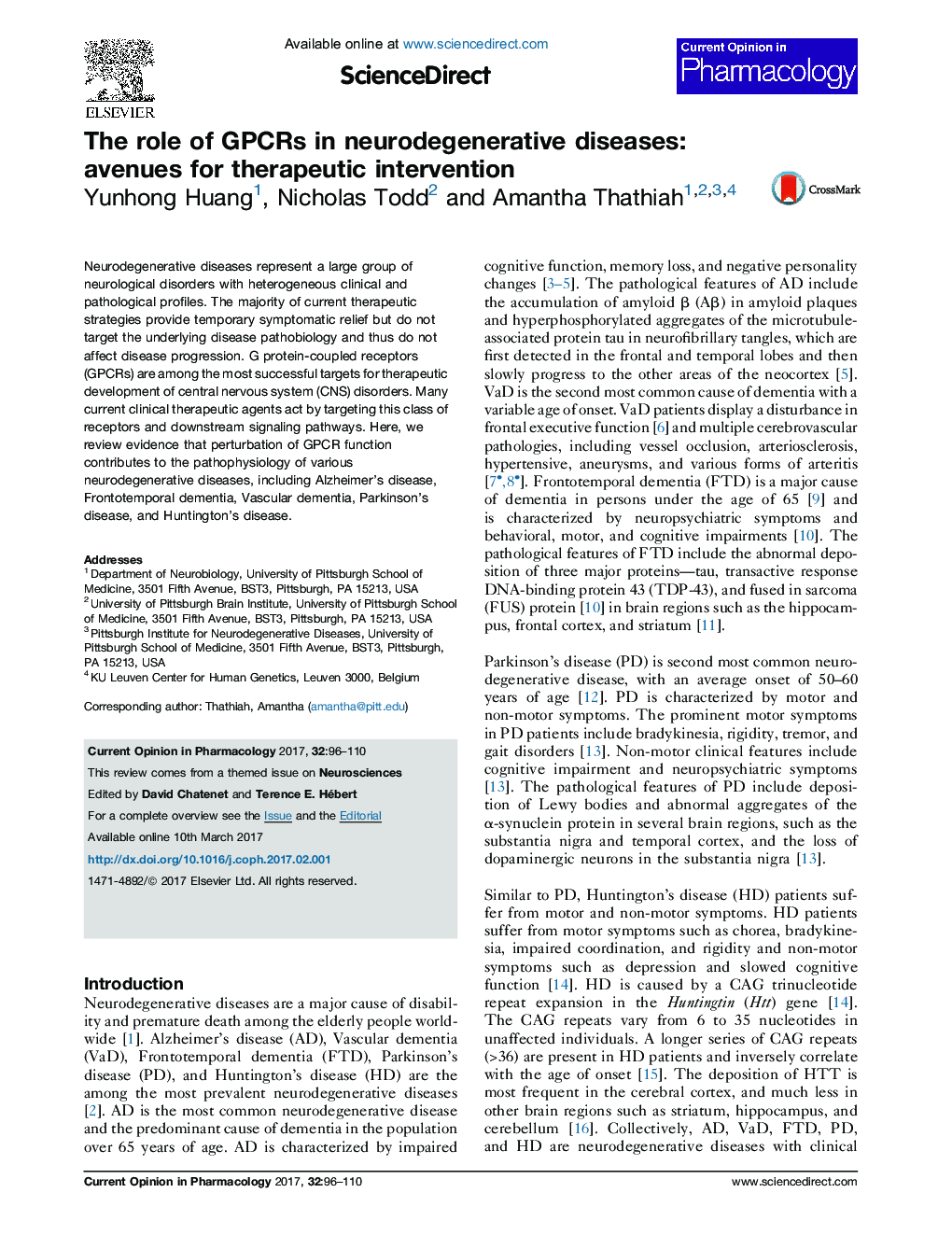| Article ID | Journal | Published Year | Pages | File Type |
|---|---|---|---|---|
| 5554320 | Current Opinion in Pharmacology | 2017 | 15 Pages |
â¢GPCRs are implicated in the pathophysiology of various neurodegenerative diseases.â¢Currently available therapies do not cure the discussed neurodegenerative diseases.â¢Understanding GPCR dysfunction is essential for effective therapeutic development.
Neurodegenerative diseases represent a large group of neurological disorders with heterogeneous clinical and pathological profiles. The majority of current therapeutic strategies provide temporary symptomatic relief but do not target the underlying disease pathobiology and thus do not affect disease progression. G protein-coupled receptors (GPCRs) are among the most successful targets for therapeutic development of central nervous system (CNS) disorders. Many current clinical therapeutic agents act by targeting this class of receptors and downstream signaling pathways. Here, we review evidence that perturbation of GPCR function contributes to the pathophysiology of various neurodegenerative diseases, including Alzheimer's disease, Frontotemporal dementia, Vascular dementia, Parkinson's disease, and Huntington's disease.
